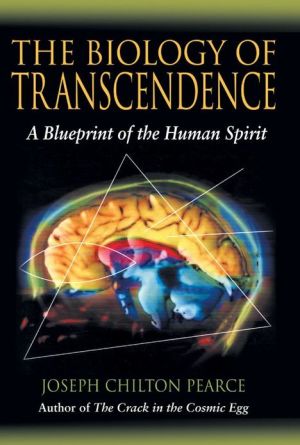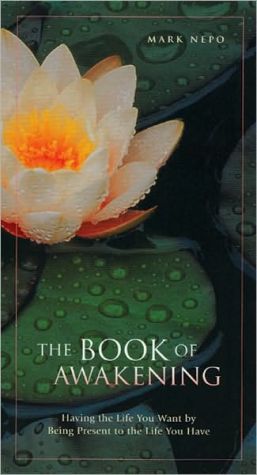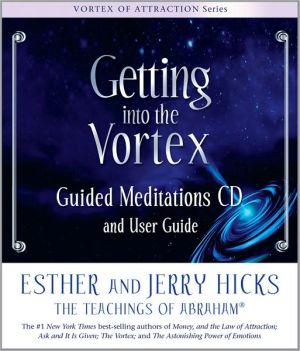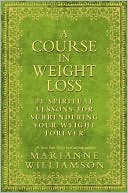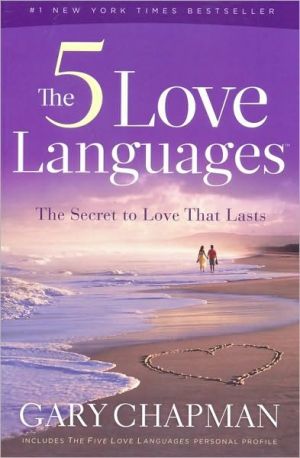The Biology of Transcendence: A Blueprint of the Human Spirit
Uses the insights and research of a new wave of biologists and neurologists to explore how we can transcend our current cultural and societal crises.\ • Explains new biological understanding of the human organism having five brains, the fifth of which is located in the heart.\ • Explains that transcendence of our current modes of behavior, thinking, and believing require the dynamic interaction of our fourth and fifth brains (intellect and intelligence).\ • Explores the idea of Jesus, Buddha,...
Search in google:
Uses the insights and research of a new wave of biologists and neurologists to explore how we can transcend our current cultural and societal crises. • Explains new biological understanding of the human organism having five brains, the fifth of which is located in the heart. • Explains that transcendence of our current modes of behavior, thinking, and believing require the dynamic interaction of our fourth and fifth brains (intellect and intelligence). • Explores the idea of Jesus, Buddha, and other historical great beings as models of nature's possibility and our ability to achieve transcendence. • How is it that we as humans seem stuck in a culture of violence and injustice? How is it that we can recognize the transcendent ideal represented by figures such as Jesus, Buddha, Lao-tzu, and many others who have walked among us and yet cannot seem to reach the same state?In The Biology of Transcendence Joseph Chilton Pearce examines the current biological understanding of our neural organization to address how we can transcend our current evolutionary capacities and limitations. This latest research identifies our five neural centers--or brains--and establishes that our fourth and most recently developed brain is located in the head while the fifth is located in the heart. It is the dynamic interaction of this head brain (intellect) and heart brain (intelligence), of biology and spirit, that allows transcendence from one evolutionary place to the next--we are, quite literally, made to transcend. Conversely, it is the breakdown of this interaction through the effects of cultural dictates surrounding us from the time we are children that keeps us where we are, mired in the current crises of violence among people and between people and the planet.But Pearce reminds us that we are not stuck for good. Transcendence is our biological imperative, a state we have been moving toward for millennia.Joseph Chilton Pearce is the author of Crack in the Cosmic Egg, Magical Child, and Evolution's End. For the past 25 years, he has taught about the changing needs of children and the development of human society. He lives in the Blue Ridge Mountains of Virginia. The Midwest Book Review "...a survey of spiritual transcendence so linked to science that it earns a place of respect in the spheres of science, health, and metaphysics."
Introduction\ Looking up at the starry sky, poet Walt Whitman asked:\ When we become the enfolders of those orbs,\ and the pleasures and knowledge of everything in them,\ shall we be satisfied then?\ And my spirit answered No, we but level that lift\ to pass and continue beyond.\ "The ability to rise and go beyond" is the definition of transcendence and the subject explored in the following pages. While this force constitutes our nature and fires our spirit, an honest exploration of it must contend with this counter-question: Why, with a history so rich in noble ideals and lofty philosophies that reach for the transcendent, do we exhibit such abominable behaviors? Our violence toward ourselves and the planet is an issue that overshadows and makes a mockery of all our high aspirations.\ Sat Prem, a French writer transplanted to India following World War II recently asked this question: "Why, after thousands of years of meditation, has human nature not changed one iota?" In the same vein, this book asks why, after two thousand years of Bible quoting, proselytizing, praying, hymn singing, cathedral building, witch burning, and missionizing has civilization grown more violent and efficient in mass murder? In exploring the issue of transcendence, we explore by default the issue of our violence. The two are intertwined.\ A great being appeared some two millennia ago, looked at our religious institutions with their hierarchies of power, professional classes, policy makers, lawyers, and armies, and observed that we should "know them by their fruits." That is, we should ask: What are the actual, tangible results of these lofty religious institutions that we have known throughout history? If we examine them by the fruits they produce, rather than by the creeds, slogans, concepts, and public relations that sustain them, we would see that spiritual transcendence and religion have little in common. In fact, if we look closely, we can see that these two have been the fundamental antagonists in our history, splitting our mind into warring camps.\ Neither our violence nor our transcendence is a moral or ethical matter of religion, but an issue of biology. We actually contain a built-in ability to rise above restriction, incapacity, or limitation and, as a result of this ability, possess a vital adaptive spirit that we have not yet fully accessed. While this ability can lead us to transcendence, paradoxically it can also lead to violence; our longing for transcendence arises from our intuitive sensing of this adaptive potential and our violence arises from our failure to develop it.\ Historically our transcendence has been sidetracked—or derailed altogether—by our projection of these transcendent potentials rather than our development of them. We project when we intuitively recognize a possibility or tendency within ourselves but perceive this as a manifestation or capacity of some person, force, or being outside of ourselves. We seem invariably to project onto each other our negative tendencies (" . . . if it weren't for the likes of you . . . that government . . . those people . . . "), while we project our transcendent potentials onto principalities and powers "out there" on cloud nine or onto equally nebulous scientific laws. The transcendence we long for then seems the property of forces to which we are subject. Like radar, our projections bounce back on us as powers we must try to placate or with which we must struggle. Perennially our pleas to cloud nine go unheeded, our struggles against principalities and powers are in vain, and we wander in a self-made hall of mirrors, overwhelmed by inaccessible reflections of our own mind. Handed down through millennia, our mythical and religious projections take on a life of their own as the cultural counterfeits of transcendence.\ Culture has been defined by anthropologists as a collection of learned survival strategies passed on to our young through teaching and modeling. The following chapters will explore how culture as a body of learned survival strategies shapes our biology and how biology in turn shapes culture. Religious institutions, cloaked as survival strategies for our minds or souls, are the pseudo-sacred handmaidens of culture brought about through our projections of the transcendent aspects of our nature. Thus this trinity of myth, religion, and culture is both the cause and source of our projections. Each element of the trinity brings the other into being and all three interlocking phenomena—myth, religion, and culture—are sustained by the violence they generate within us.\ Our greatest fear, the late philosopher Suzanne Langer said, is of a "collapse into chaos should our ideation fail us." Culture, as the collected embodiment of our survival ideation, is the mental environment to which we must adapt, the state of mind with which we identify. The nature or character of a culture is colored by the myths and religions that arise within it, and abandoning one myth or religion to embrace another has no effect on culture because it both produces and is produced by these elements.\ Science has supposedly supplanted religion—but it has simply become our new religious form and an even more powerful cultural support.\ If our current body of knowledge, scientific or religious, is threatened, so are our personal identities because we are shaped by that body of knowledge. Such threat can lead us to behaviors that run counter to survival. This book explores how our violence arises from our failure to transcend, and how our transcendence is blocked by our violence; how it is that culture is a circular stalemate, a kind of mocking tautology, self-generative and near inviolate. That we are shaped by the culture we create makes it difficult to see that our culture is what must be transcended, which means we must rise above our notions and techniques of survival itself, if we are to survive. Thus the paradox that only as we lose our life do we find it.
AcknowledgmentsviiIntroduction1Part 1Nature's Transcendent BiologyPreface to Part 1A Saga of Unconflicted Behavior101Evolution and Our Fourfold Brain212Evolution's Latest: The Prefrontal Lobes403The Triune Heart: Electromagnetic, Neural, Hormonal554Fields within Fields: Of Frequencies and Neurons74Part 2The Anatomy of EvilPreface to Part 2Dorchester Hill945Why Nature's Plan Breaks Down996Bioculture and the Model Imperative1147The Enculturated Self1288The Great Accusation152Part 3Beyond EnculturationPreface to Part 3Adventures of Spirit and Truth1789Laski's Revelation18710Always Becoming20311Why Bother and Who Cares?22312The Resurrection of Eve243Epilogue256Resources263Bibliography264Index272
\ Doctor - Roger Taylor\ "This book must be read by anyone wanting a better future for the world."\ \ \ \ \ John W. Travis"I've spent over thirty years pioneering wellness programs, always trying to grasp why it is such a struggle for people to attain and maintain the well-being that is their birthright. In the last decade I finally came to appreciate what Pearce discovered long ago: that the heart and key to wellness lies in how we nurture our young—enabling them to thrive, rather than merely survive."\ \ \ Carla Hannaford"Joseph Chilton Pearce has profoundly altered my view of religion and culture and has left me with both the understanding and the tools to go beyond limitations to the joy of love and all its possibilities."\ \ \ \ \ Robert Simmons"Rarely does a single book encompass such far reaching vistas and disturbing revelations as The Biology of Transcendence."\ \ \ \ \ Jean Houston“This is a masterpiece of science and spirit, love over law, and the stunning biological truth of the capacity for transcendence that the universe has placed within us. Here, in brilliant and incisive words, is the foundation for a new mind and a new world.”\ \ \ \ \ Thom Hartmann"The Biology of Transcendence will transform your worldview and change forever your understanding of our past, present, and future. Riveting, insightful, and penetrating, Pearce has laid out one of the most startling and powerful visions of our future. . . . You won't be able to put this book down, and when you've read it, you won't be able to stop talking about it with everybody you know."\ \ \ \ \ Fran Shaw". . . an engaging blend of scientific research and personal accounts of altered states, [this book] outlines the anatomy of levels of consciousness."\ \ \ \ \ Charles Eisenstein"Revolutionary significance for anyone...seeking clues on how to develop the magnificent but frustrated potential that is our birthright."\ \ \ \ \ The Midwest Book Review"...a survey of spiritual transcendence so linked to science that it earns a place of respect in the spheres of science, health, and metaphysics."\ \ \ \ \ Dr. Roger Taylor"This book must be read by anyone wanting a better future for the world."\ \
